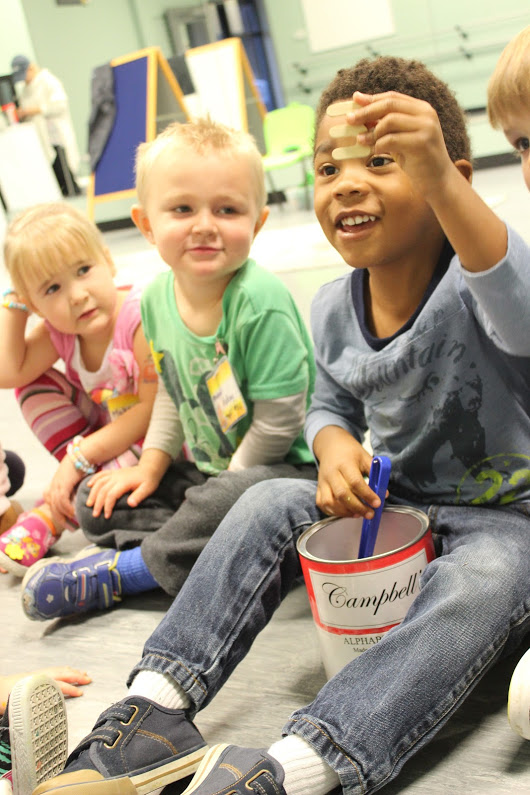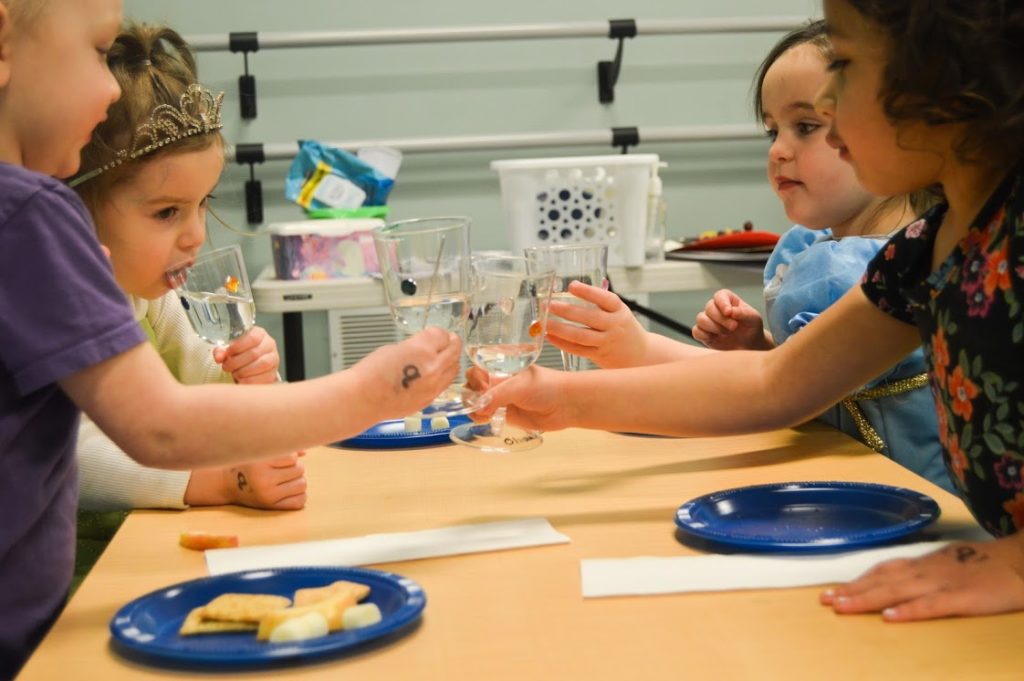Executive function. It’s a really unflashy way of describing something that’s absolutely crucial in your child’s development.
Executive function refers to the skills we have that help us organize our thoughts, set goals, plan, get things done, manage impulses, control how our feelings impact our actions, and more.
If you’re a parent, nobody needs to tell you that young children still have a ways to go when it comes to developing executive functions. For example, when your 2-year-old wants a toy, she may snatch it out of a playmate’s hand without a thought (difficulty managing impulses). If you have her give the toy back to her friend, she may erupt in tears and flailing limbs (difficulty controlling how her feelings impact her actions).
Your 4-year-old may climb a tree or rock wall to get to a toy, only to find that once he’s there, he doesn’t know how to get down (difficulty with planning).
There are three main areas of executive function: working memory, cognitive flexibility (or flexible thinking), and inhibitory control (including self-control).
As children develop their executive functioning skills, they get better at:
- regulating emotions
- keeping track of what they’re doing
- listening to and understanding other points of view
- starting tasks and finishing them
- paying attention
- organizing
- planning
- prioritizing
It’s perfectly normal for your preschooler to struggle with some of these skills. In fact, executive function is still developing well into the mid-twenties, so you can expect struggles in different areas at different ages.
From preschool to about second grade, it’s common for children to have trouble following directions, give up instead of asking for help, and fall apart emotionally over minor things.
How to Improve Executive Functioning Skills
Your child’s ability to use executive function will play a huge role in their later school and life success. Use these ideas to give your child the best chance at success.
Give Your Child a Quality Preschool Education
A Penn State study showed that children who were involved in a quality preschool education that focused on emotional and social education, as well as early literacy, had dramatically improved executive function skills as opposed to those who were not. They followed the children through third grade, and found that not only did those children continue to have strong executive function skills, their academic skills were stronger as well.
And it makes sense. If a child struggles with executive functions in the classroom (regulating behavior and emotions), it will be hard to focus and learn.
A strong preschool education is one of the best gifts you can give your young child. When looking for a preschool, ask the director how they support social and emotional skills. A director who discusses a play-based curriculum and child-directed learning will likely focus on supporting children through their executive function development.
Model Good Executive Functions
Whenever you’re trying to teach your child something, improving that behavior or skill in yourself is one of the best places to start. Children watch you and learn from you. Practice better self-control. If you lose your cool and yell at your child, catch yourself and say, “I was frustrated and I yelled. I wish I hadn’t done that, and I’m going to try to do better next time.”
Practice calming down before you explode by saying, “I’m feeling frustrated and like I want to yell. I’m going to go cool down for a minute and then we can talk again.”
Don’t Expect Perfection
Remember: kids get tired. Kids get hungry. Kids are still learning. Don’t demand your child practice or use their executive function skills when a meltdown is brewing. Save practice for times when everybody is already calm. Eventually, your child will use those skills more and more.
Support Imaginary Play
Imaginary play is the perfect practice field for strengthening executive functions. In imaginary play, children develop and remember complex rules. They take turns. They take on the role of another character and behave as that character. They even regulate each other’s behavior, which is an important step in self-regulation.
- Let your child have plenty of imaginary play time, and provide props and toys that encourage this type of play.
- Choose a preschool that supports play-based learning.
- Read stories together to continue building imagination.
Play Movement and Music Games
Learning games that involve music and/or movement is a fun way to improve executive function skills. These types of games require your child to put words and actions together, to move certain ways, and to remember sequence — all of which is a rich foundation for executive skill building.
- Let your child try physically challenging things, like climbing play structures and walking on balance beams.
- Play freeze dance. Your child dances around while the music plays, but when it stops, your child “freezes” in the position they are in, while turning their attention back to you.
- Sing songs that repeat previous sections, such as “This Old Man” or “5 Little Speckled Frogs.”
Tell Stories
Learning to listen to a narrative is an important skill for your child to develop. In addition to reading stories, occasionally tell stories too.
- Begin a story (made up or familiar), and stop at a critical moment. Encourage your child to pick up the story and tell what happens next.
- Pull out your laptop and ask your child to tell you a story. Write what she says, and read it back to her later.
- Have your child act out stories he has made up.
- Listen to audio books while you drive.
Come see how we encourage executive function skills at UDA Creative Arts Preschool in Draper, Utah. Give us a call at (801) 523-5930, or contact us online for a tour.



